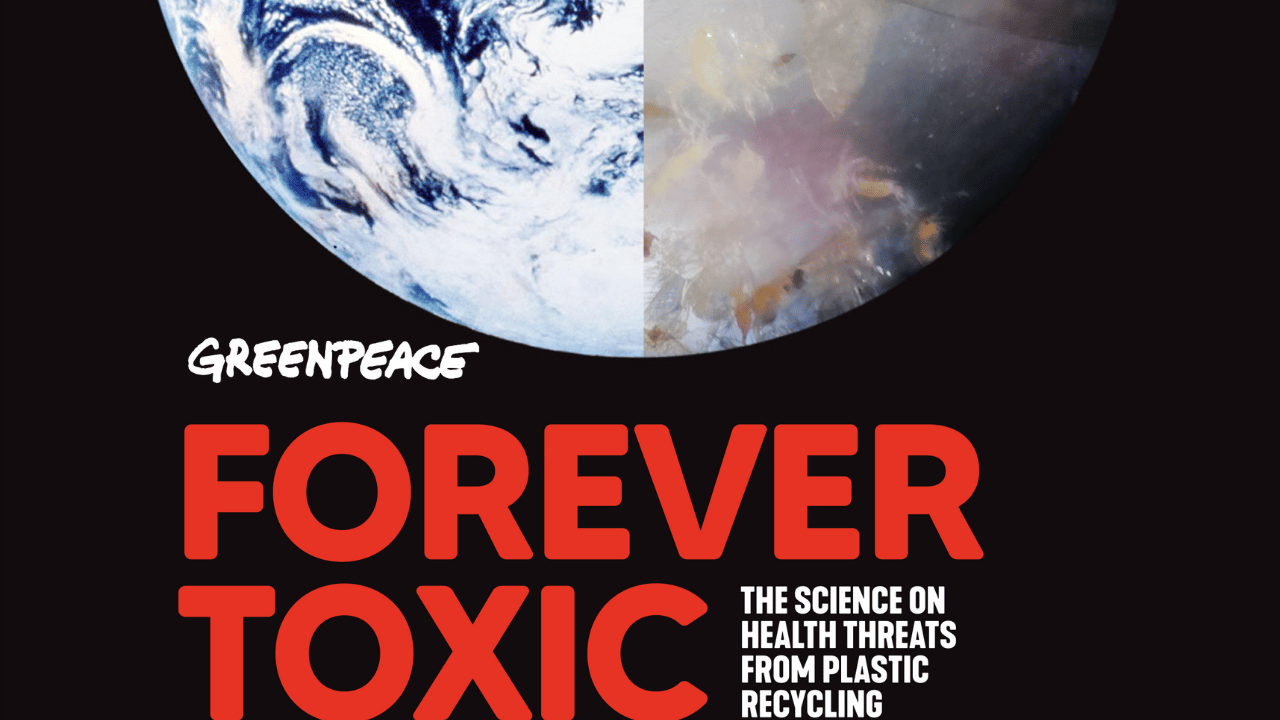Ugly Truth Behind Plastics Recycling: Greenpeace's "Forever Toxic" Report
Jul 31, 2023
For decades, plastics have been an everyday part of every person’s life. I would argue it’s one of the few things all people have in common - whether you live in a wealthy or developing nation, regardless of race or religion, and like it or not, plastics touch all of us in some way, shape, or form.
We could argue till the cows come home whether plastics are a necessary evil in our global society or if they’ve caused more harm than good, but I think we can all agree that plastics, by their very nature, are harmful.
And unlike some of the other posts we do here on The Underswell, this is a fact, not an opinion. That’s the point that Greenpeace aims to get across in one of their newest reports, “Forever Toxic: The Science on Health Threats from Plastic Recycling.”
Greenpeace has been on a roll lately with their reports and plastics have been at the center of all of it. If you recall, in April they also released their report “Greenwash Danger Zone” which argued that rPET in the textile industry should not be considered a preferred material. I disagree with this statement, but after reading “Forever Toxic,” I see the merit in their perspective.
This report comes on the heels of the UNEP’s proposed “End Plastic Pollution" resolution, an international agreement that will potentially eliminate plastic pollution. In it, 175 nations are set to create the legally binding agreement by 2024, and while no concrete details have been put in place yet, time will reveal what will be included in the treaty.
So while the UN takes the next year and a half to write the Global Plastics Treaty, Greenpeace is supplementing stakeholders with some good ol’ fashioned data on plastics’ impacts. Our world has become accustomed to the idea that recycled plastic is better than virgin plastic and from an LCA perspective this is generally true, but from a health perspective, there are few differences between recycled and virgin plastics.
This is largely due to the chemical inputs associated with plastics production and recycling. Virgin plastics are created using various chemicals, plastic waste interacts with these chemicals and causes contamination, and the recycling process causes these chemicals to react and create (or degrade into) new chemicals.
This wouldn’t necessarily be a problem if the chemistry used to make plastics was safe. You’ve probably heard us talk about “green” or “clean” chemistry and the importance of avoiding SVHCs and adopting a best-in-class MRSL. Currently, plastics are made up of over 13,000 chemicals, and 3,200 have been found to be hazardous. Thousands more have not been tested and even more chemicals/chemical formulations are in production every day. We won’t be able to rein in the plastics industry until we have clear, unified standards on chemicals management.
Greenpeace provides many more details throughout the report that are worth looking into but to summarize, plastics, even the recycled ones, may not be all that we had hoped for. Plastic production forecasts predict plastics will triple by 2060. With all that plastic and improper recycling schemes, waste will continue to be a problem.
So what does all of this mean and what should we immediately do? The answer is simple for all stakeholders - reduce the amount of plastic you use. Whether you're an everyday consumer or you're in the C-suite, we can all find ways to reduce the amount of plastic in our products and our lives. That means reducing the amount of synthetic materials in our products, reducing plastic packaging, choosing reusable, and supporting legislation to reduce and ban plastics community and statewide, as well as federally and internationally.
The plastics reduction journey will take years and we may not even be able to find a solution within our lifetime, but with support from people around the world, we can build a global community dedicated to creating a better, plastic-free future for generations to come.
#plastics #wastereduction #recycling #plasticpollution #toxicology #sustainability #ethicalconsumption
